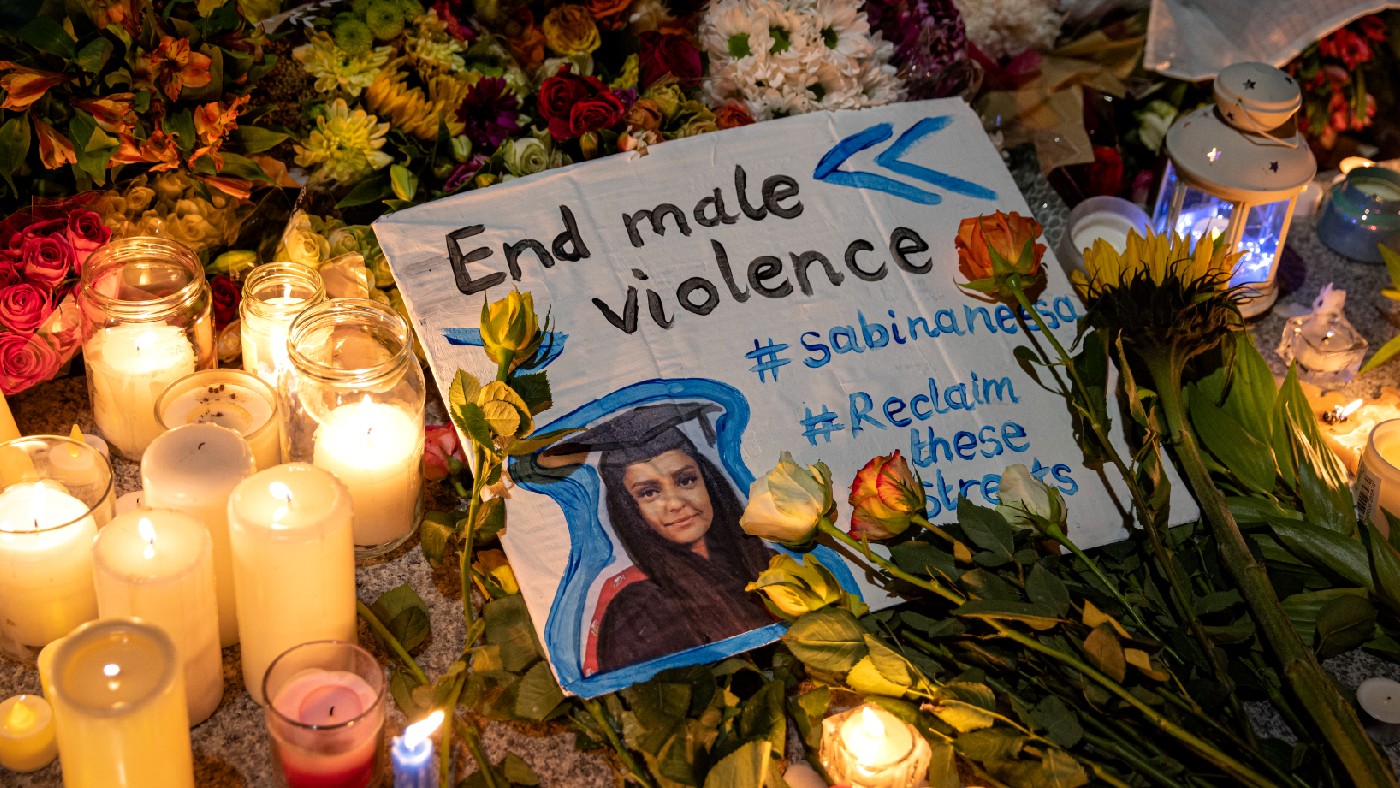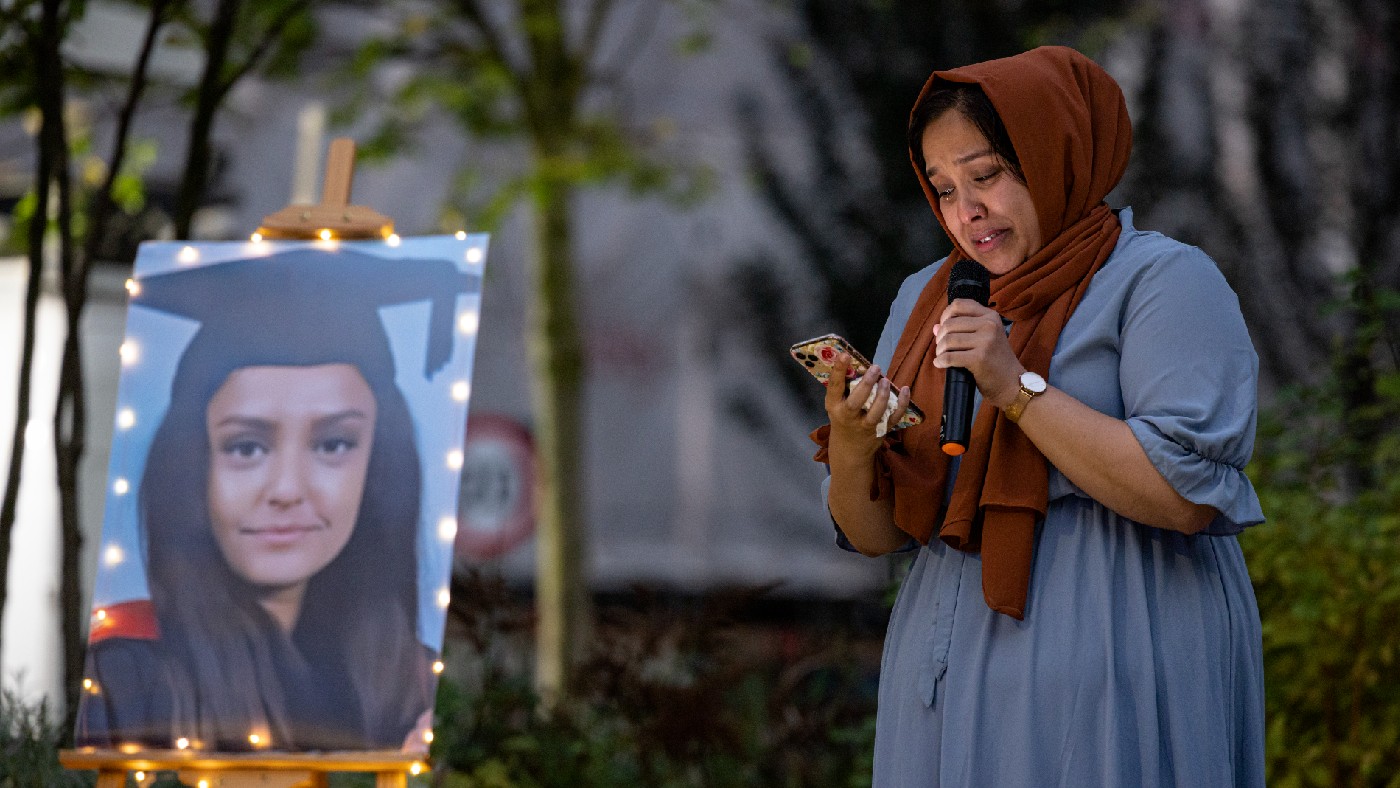What happened to Sabina Nessa?
‘Predatory’ killer of primary school teacher is jailed for life

A free daily email with the biggest news stories of the day – and the best features from TheWeek.com
You are now subscribed
Your newsletter sign-up was successful
An “evil” killer who murdered primary school teacher Sabina Nessa in a London park has been jailed for life.
Koci Selamaj, a 36-year-old garage worker, will serve a minimum of 36 years in prison for the “savage” sexually motivated attack, Sky News reported.
CCTV footage captured Selamaj striking the 28-year-old Nessa over the head until she was unconscious, before carrying her away. He then “strangled her, removed some of her clothes and tried to hide her body”, the BBC said.
The Week
Escape your echo chamber. Get the facts behind the news, plus analysis from multiple perspectives.

Sign up for The Week's Free Newsletters
From our morning news briefing to a weekly Good News Newsletter, get the best of The Week delivered directly to your inbox.
From our morning news briefing to a weekly Good News Newsletter, get the best of The Week delivered directly to your inbox.
Mr Justice Sweeney said Nessa was the “wholly blameless victim of an absolutely appalling murder which was entirely the fault of the defendant”. Selamaj refused to attend the Old Bailey and was sentenced in his absence.
He first appeared in court last year, charged with the “premeditated and predatory” murder of Nessa, whose shocking death fuelled calls for urgent action to improve women’s safety on UK streets.
The 28-year-old was found dead in Cator Park, Kidbrooke, in the southeast of the capital, on Saturday 18 September 2021. She had left her nearby home the previous day at around 8.30pm to meet a date in a bar less than ten minutes away, but had not been seen since.
On 30 September, the Old Bailey heard that Selamaj used a 2ft-long weapon to repeatedly strike Nessa before carrying her away unconscious, reported the BBC.
A free daily email with the biggest news stories of the day – and the best features from TheWeek.com

Nessa’s body was discovered by a member of the public walking his dog the following morning. “At first he was talking to her, thinking it was someone drunk sleeping it off in the long grass. Then he realised she was dead,” his neighbour told the Evening Standard.
An initial postmortem examination carried out on 20 September was inconclusive.
Prosecutor Alison Morgan QC told the court it was a “premeditated and predatory” stranger attack and there was no suggestion that Selamaj knew Nessa. Selamaj, from Eastbourne, East Sussex, appeared in court via a video link from Wormwood Scrubs and was assisted by an Albanian interpreter, The Guardian reported.
At a vigil attended by more than 500 people at Pegler Square in Kidbrooke Village on the evening of Friday 24 September, Jebina Yasmin Islam, Nessa’s sister, broke down as she addressed the crowd. “We have lost an amazing, caring, beautiful sister, who left this world far too early,” she said, the BBC reported.
Vigils were also held in Hackney, Newham, Bristol and Brighton, while many lit candles on their doorsteps to pay tribute to Nessa, who taught pupils aged five and six and was described by her cousin as “the kindest, sweetest girl you could meet”.
Selamaj’s arrest on 26 September followed an appeal by Scotland Yard to help trace a balding man wearing grey jeans and a black jacket who was captured on CCTV images taken near Cator Park. He was the third man to be arrested in connection with Nessa’s murder. The week before, detectives had arrested a man in his 40s and a 38-year-old man who were both released under further investigation.
Kent and Metropolitan police officers searched an area of woodland near Tunbridge Wells as part of the ongoing investigation into Nessa’s murder. Witnesses also saw search drones in the sky, Kent Online reported.
The brutal murder of Nessa came six months after the high-profile abduction, rape and murder of 33-year-old marketing executive Sarah Everard just eight miles away in Clapham, south London. Everard was murdered by a stranger – Metropolitan Police officer Wayne Couzens who was sentenced to a rare whole life order on 30 September after pleading guilty to her murder in July.
Lord Justice Fulford said that Couzens had carried out “warped, selfish and brutal offending that was both sexual and homicidal”, and that the last moments of his victim’s life were “as bleak and agonising as it is possible to imagine”.
Just nine months before Everard was killed, sisters Bibaa Henry and Nicole Smallman were stabbed to death by a stranger at Fryent Country Park in Wembley, northwest London. Over the past year alone, 105 women in the UK have been murdered in cases where a man is the principal suspect, according to ITV News and Counting Dead Women – a group that tracks femicide in the UK.
Questions have been raised over why the disappearance and murder of Everard – a white woman – was initially given significantly more press coverage than that of Nessa, a woman of colour. “ALL women deserve an equal level of support and attention,” wrote the charity Women’s Aid on Twitter. “It is not good enough that victims from Black and marginalised communities do not receive the same level of profile.”
Writing for The Telegraph on 23 September, Jamie Klingler, co-founder of the Reclaim These Streets movement that organised the vigil, said she was heartbroken by Nessa’s murder and frustrated that “nothing has been done to improve safety for women” since Everard’s murder.
“That our lives and safety aren’t prioritised is something women understand,” she wrote. “There is a bigger fine for littering than harassing a woman on the street. A longer sentence is possible for stealing a dog than strangling a woman. What are our lives worth? What is our safety worth?”
Detective chief superintendent Trevor Lawry, who is responsible for policing in Kidbrooke, has insisted that the streets are safe for women. “I’d like to reassure the public around that,” he said. “I’d like to make sure that people are free to walk around, free from fear, and my officers will make sure that that can take place,” he said.
Following the discovery of Nessa’s body, Greenwich Council swiftly distributed more than 200 security alarms to women and vulnerable people in the Kidbrooke area, according to My London. The move drew considerable criticism, with many accusing the council of making male violence a women’s problem – rather than addressing its root causes.
“Handing out alarms and increasing street lighting merely shines a brighter light on the inadequacy of the state’s response,” wrote one social media user.
Writing for the BBC, Bethan Bell expanded on this point. “Women are not attacked because of our route home; we are not attacked because our walk was not ‘purposeful’ enough, or because of what we were wearing,” she explained.
“If a woman is murdered by a man she doesn’t know, it is because he wanted to murder her. There is no other reason.”